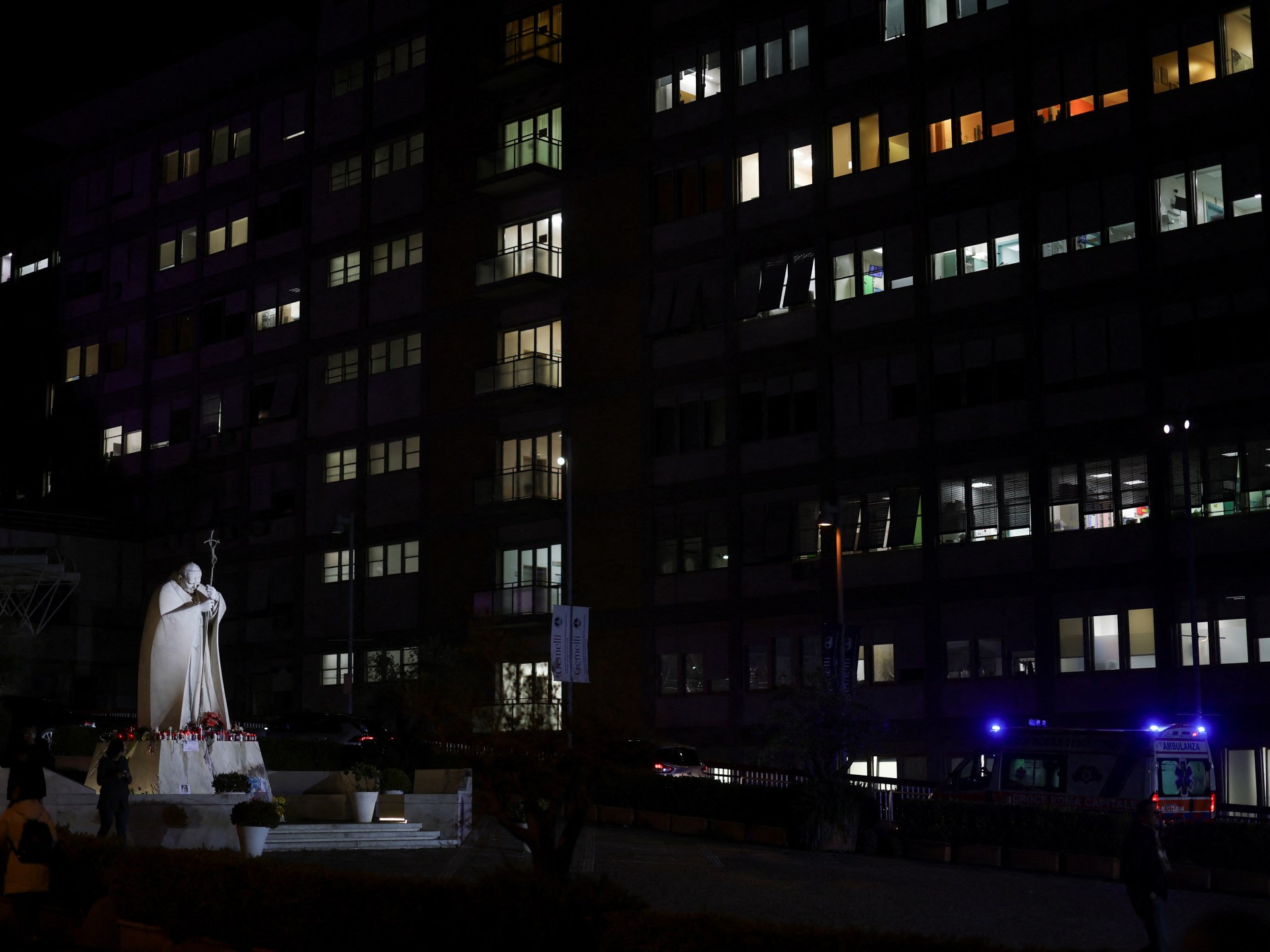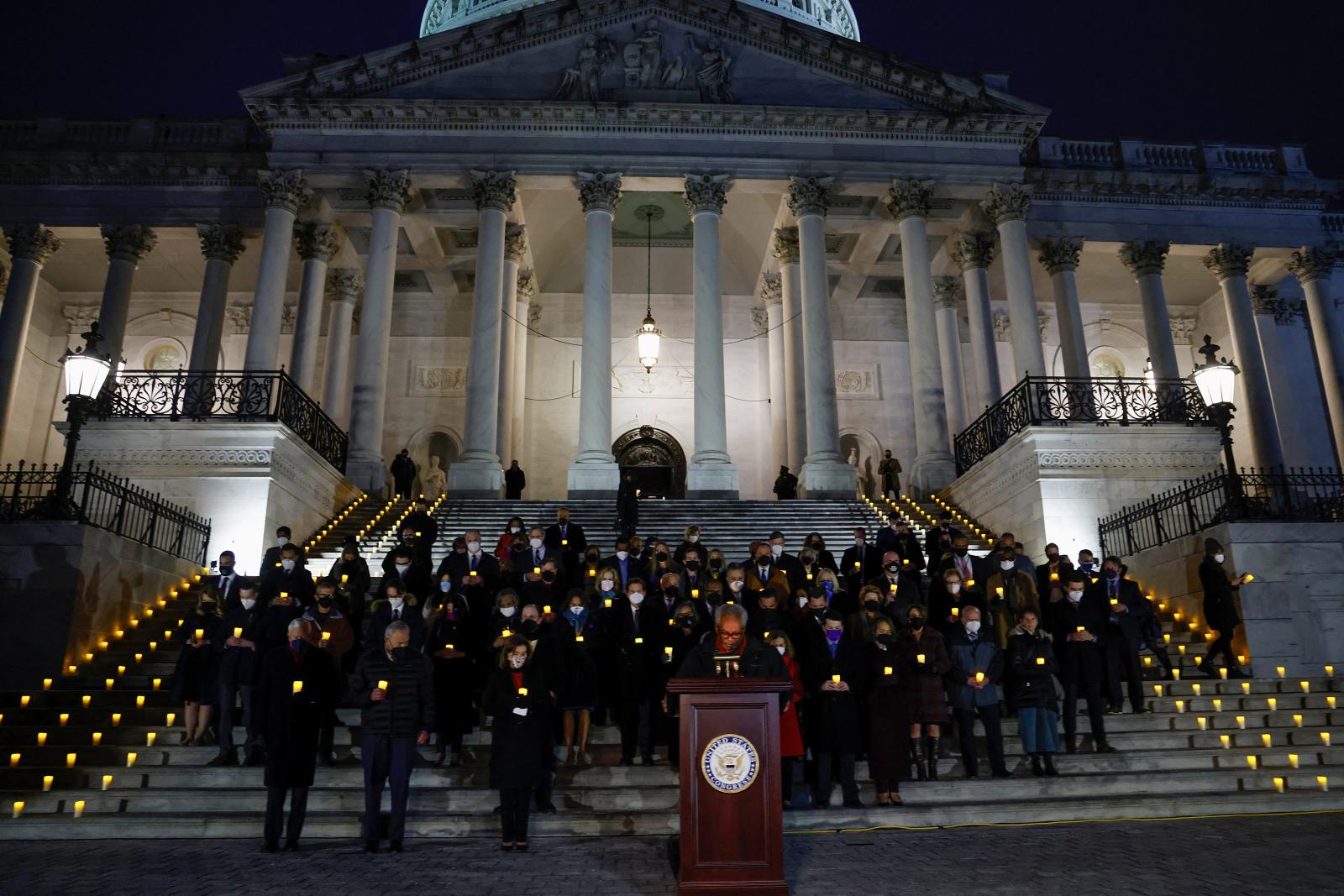Breaking Barriers: When Science, Faith, and Nature Collide
Religion
2025-04-01 11:00:00Content

In his groundbreaking book "Some New World," historian Peter Harrison challenges long-standing misconceptions about the relationship between science and religion, offering a fresh perspective on their intertwined origins. Contrary to popular belief, Harrison dismantles the simplistic narrative that science and religious belief are inherently incompatible.
Through meticulous research, Harrison reveals how early scientific pioneers were often deeply religious individuals who saw their scientific pursuits as a profound way of understanding God's creation. The book unravels the myth of a stark conflict between scientific inquiry and religious thought, demonstrating instead a rich, complex historical relationship.
Harrison's work is a powerful reminder that the roots of modern scientific methodology are deeply embedded in religious contemplation and philosophical exploration. He shows how religious scholars and thinkers were not obstacles to scientific progress, but often its most passionate architects.
By deconstructing popular myths about the origins of science, "Some New World" invites readers to reconsider their understanding of intellectual history. Harrison's nuanced approach challenges readers to see beyond simplistic narratives and appreciate the intricate ways in which faith and reason have collaborated throughout human knowledge.
This compelling narrative not only reshapes our understanding of scientific development but also offers a more nuanced view of how human curiosity and spiritual inquiry have always been interconnected.
Unraveling the Myths: Science, Religion, and the Untold Story of Human Knowledge
In the intricate tapestry of human understanding, few debates have been as persistently contentious as the perceived conflict between scientific inquiry and religious belief. Peter Harrison's groundbreaking work challenges the deeply ingrained narratives that have long divided intellectual thought, offering a revolutionary perspective on the complex relationship between scientific exploration and spiritual understanding.Challenging Conventional Wisdom: A Paradigm-Shifting Exploration of Knowledge
The Historical Landscape of Scientific Discovery
The traditional narrative of scientific progress has long been painted as a stark battle between rational thought and religious dogma. However, Harrison's meticulous research reveals a far more nuanced reality. Throughout history, religious institutions and scholarly minds have often been collaborative partners in the pursuit of knowledge, rather than adversarial opponents. Contrary to popular belief, many of the most significant scientific breakthroughs emerged from deeply religious contexts. Medieval monasteries were not just centers of spiritual contemplation but also crucibles of intellectual innovation. Scholars within these institutions developed sophisticated methods of observation, documentation, and critical thinking that would later become foundational to scientific methodology.Deconstructing the Myth of Incompatibility
Harrison's work meticulously dismantles the simplistic narrative of science and religion as inherently conflicting domains. By examining historical evidence, he demonstrates that many pioneering scientists were motivated by deeply held religious convictions. Their spiritual beliefs often provided the philosophical framework and moral imperative for scientific exploration. The book explores how religious worldviews contributed to the development of scientific methodologies. Theological questions about the nature of creation, divine order, and human understanding frequently inspired rigorous intellectual investigations. Prominent scientists like Isaac Newton and Gregor Mendel viewed their scientific pursuits as a form of understanding divine complexity.Reimagining Intellectual Boundaries
The profound implications of Harrison's research extend far beyond academic discourse. By challenging prevailing narratives, he invites readers to reconsider the artificial boundaries between scientific and spiritual understanding. The book argues that knowledge is not a zero-sum game where one perspective must necessarily diminish another. Modern scientific paradigms often emerge from philosophical and spiritual questioning. The quest to understand the universe's fundamental mechanisms has roots in both empirical observation and profound existential curiosity. Harrison's analysis suggests that intellectual progress is most vibrant when diverse perspectives engage in meaningful dialogue.Contemporary Relevance and Intellectual Transformation
In an era of increasing polarization, "Some New World" offers a refreshing and nuanced perspective. The book demonstrates that intellectual growth occurs at the intersection of different ways of knowing. By embracing complexity and rejecting reductive narratives, we can cultivate a more holistic understanding of human knowledge. The research challenges contemporary assumptions about the nature of scientific progress. It reveals how cultural, philosophical, and spiritual contexts shape scientific inquiry, suggesting that objective knowledge is always filtered through human experience and understanding.Methodological Innovation and Scholarly Rigor
Harrison's approach is distinguished by its methodological sophistication. Drawing from extensive historical research, philosophical analysis, and interdisciplinary insights, the book presents a comprehensive reexamination of scientific and religious epistemologies. The scholarly rigor underpinning the work provides a robust framework for understanding the intricate relationships between different forms of knowledge. By presenting nuanced arguments supported by extensive evidence, Harrison invites readers to transcend simplistic dichotomies and embrace a more sophisticated intellectual landscape.RELATED NEWS
Religion

Religious Freedom or Pandora's Box? The RFRA Controversy That Shook Indiana
2025-03-26 15:05:24
Religion

Houston Grieves: Local Voices Reflect on Pope Francis' Unexpected Passing
2025-04-21 21:20:43
Religion

Chidambaram Exposes: The Systematic Marginalization of Muslims in Modern India
2025-04-06 01:50:00





